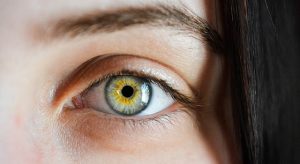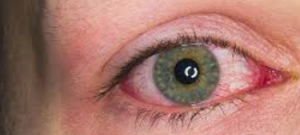Did you know that stress can impact the health of your eyes?
According to research, mental stress can affect your eyes and lead to visual distortions — and even put you at risk of developing sight-threatening eye diseases.
When your brain perceives an increase in stress levels, it releases cortisol, the primary stress hormone in your body that’s responsible for initiating your ‘fight-or-flight’ response. This response causes your heart rate and blood pressure to rise, and helps prepare your body to either fight or run away from your potential physical threat, be it a wild animal or intruder.
However, if your stress is due to a work project or school exam, these physical reactions in response to your increased stress can severely impact your vision and eye health.
How does stress cause vision problems?
When you feel stressed, worried or fearful, your fight-or-flight response causes your body to react so that you can manage the potentially threatening situation.
The impact of the body’s ‘fight or flight’ reaction also affects the eyes and visual system and can lead to eye strain and headaches.
Chronic stress can lead to a build up of pressure inside your eyes and put you at risk of optic nerve damage and glaucoma.
Hundreds of studies and clinical trials have shown that stress can increase the risk of vision loss from eye diseases such as glaucoma, optic neuropathy, diabetic retinopathy, and age-related macular degeneration.
Common stress-related vision problems
If you have been feeling extra stressed lately, you may have noticed some of these visual symptoms:
- Blurry vision
- Sensitivity to bright light
- Eye twitching
- Dry eye
- Excessive tearing
- Headaches
- Eye strain
- Eye floaters
SEE RELATED: How to Avoid Computer Eye Strain?
If stress is impacting your work or school performance, schedule an appointment with an eye doctor near you to discuss the best treatment options.
What is near point visual stress?
Near point visual stress (NPVS) is a vision problem that affects many students and adults who spend a significant portion of their day reading or using a computer.
Near point visual stress stems from a problem within the visual system — when the visual skills necessary for continuous near-vision focusing aren’t strong enough, and reading, learning, computer use and other near-vision tasks place too much strain on the eyes.
Near-point vision stress often leads to eye strain, eye fatigue and headaches, specifically during or after extensive reading or screen time.
The stress placed on the visual system triggers the “fight or flight” response, causing vision problems and many times, behavioral or attentional issues.
Although some of its symptoms are similar to those related to stress-induced vision problems, NPVS is not a temporary condition that goes away on its own.
Fortunately, vision therapy is an effective treatment program that can strengthen the visual system and improve the visual skills necessary for prolonged near-focusing.
How to treat stress-related vision problems
Most stress-related vision problems are temporary and will disappear as soon as you begin to relax.
The best way to de-stress is to make sure you are taking care of yourself, and not just worrying about the needs of everyone around you.
Here are some ideas to help you combat your stress:
- Get daily exercise
- Meditate
- Practice deep breathing
- Eat a well balanced diet
- Write in a journal
- Get enough sleep
You can also join a support group or speak with a professional who can help you manage your stress.
Once your body and mind are calm, your visual symptoms should disappear.
However, if you continue to notice changes in your eyes or vision, consult with your eye doctor to rule out an underlying eye condition.
Can vision therapy treat stress-related vision problems?
Yes, if your visual system is under stress, vision therapy can be an effective treatment
Functional vision problems, such as convergence insufficiency or accommodative dysfunction, occur when there is a problem within the visual system. But, these vision problems can be exacerbated by chronic high stress.
If a functional vision problem is at the root of your symptoms, then vision therapy can help to alleviate your discomfort by strengthening the visual system and improving the visual skills necessary for clear and comfortable vision.
LEARN MORE: Guide to Blurry Vision and Headaches
If you are experiencing stress-related vision problems, contact an eye doctor near you to learn how you can best care for your eyes.
Mental stress can affect your eyes, and lead to visual distortions and even vision loss.
Fortunately, most stress-related vision problems are temporary and will disappear as soon as you begin to relax.










